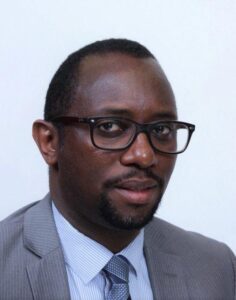By Moses Magadza in Swakopmund, Namibia
An intergovernmental organisation that supports sustainable democracy globally has called for sustained action to dismantle systemic barriers impeding women’s full participation in political life.
Mr Gram Matenga, the Regional Head of Programmes for Africa and West Asia at the International Institute for Democracy and Electoral Assistance (International IDEA), made the call on Wednesday at the official opening of a high-level Roundtable on Women in Politics and Decision-Making Roles in Namibia.
Matenga welcomed Namibia’s historic election of its first female President earlier this year, describing it as “an extraordinary achievement that resonates not only across the African continent but also stands as a powerful symbol of progress on the global stage.”
He paid tribute to former Namibian Minister of Gender Hon. Doreen Siyoka for her longstanding contribution to gender equality and women’s political empowerment, before setting out the urgency of the moment.
“This dialogue takes place against the backdrop of a world marked by profound instability,” he said, pointing to the devastating impacts of ongoing conflicts in Ukraine and Gaza and the rollback of democratic values worldwide, especially for women and children.
He said that although African countries have made gains, structural obstacles continue to block progress.
“Patriarchal systems, social norms that reinforce the subordination of women, and the enduring perception that public life is the domain of men still restrict women’s full and equal participation, despite constitutional guarantees and international commitments,” he noted
Matenga described Namibia as a valued Member State of International IDEA, and praised its leadership in women’s representation.
Regardless, Matenga cautioned, “While Namibia continues to rank among global leaders in women’s parliamentary representation, other countries like Nigeria and Botswana continue to lag behind, reflecting a fragmented reality on the continent.”
He warned of persistent challenges including gender-based violence, unpaid care burdens, exclusionary political systems, online harassment, and campaign financing inequities.

Citing the 2024 “super election year,” Matenga pointed out that global women’s parliamentary representation increased by a mere 0.3 percentage points, the slowest growth since 2017.
He called for a reimagining of political systems.
“Supporting women’s political participation must be comprehensive and sustained, spanning the entire political journey from the decision to run, through election campaigns, to meaningful participation once elected,” he stated.
Matenga offered a critique of political parties, which he described as “gatekeepers” that often uphold male-dominated hierarchies.
“While women are actively mobilised as voters and campaigners, their contribution rarely translates into substantive inclusion in party leadership or decision-making roles,” he said.
He urged parties to embrace internal reforms to promote inclusivity.
“Enhancing women’s presence in party leadership, securing placement on candidate lists, and ensuring equitable access to political financing are not merely desirable but essential for democratic consolidation,” he stressed.
He added, “Increasing women’s political participation is not just a question of numbers. It is fundamentally about reshaping political cultures and institutions to reflect the values of equity, justice, and inclusion. Democracy cannot be sustainable if it continues to exclude half of its population from decision-making.”
More from Africa News 24
High-level women’s parliamentary roundtable to advance gender equality in politics underway
He pledged continued support from International IDEA.
“We remain firmly committed to promoting gender equality in political life and to supporting the aspirations of women leaders across Namibia and beyond,” he reiterated.
The roundtable, co-hosted by the Ministry of Gender Equality and Child Welfare and International IDEA, runs from 15 to 17 July and brings together all female Members of the National Assembly for coaching, mentoring, and strategic dialogue aimed at enhancing women’s political leadership and influence in Namibia.
Notable among delegates present were Namibia’s Speaker of the National Assembly, Hon. Dr. Saara Kuugongelwa-Amadhila, the Minister of Gender Equality and Child Welfare, Hon. Dr. Emma Kantema, and Ms Boemo Sekgoma, the Secretary General of the SADC Parliamentary Forum
-Moses Magadza is the Media and Communications Manager at the SADC Parliamentary Forum.












